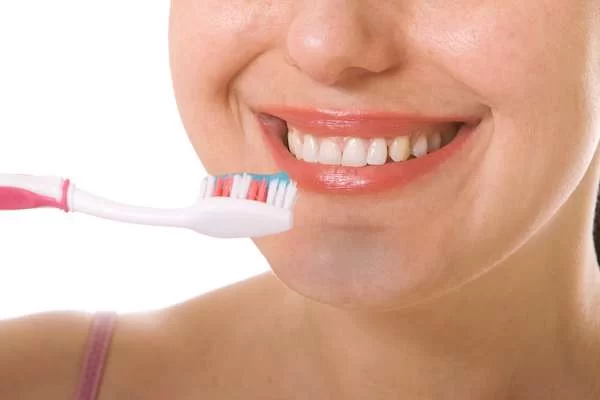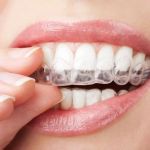
Best Habits for Brushing Your Teeth Before Bed for Healthy Oral Hygiene
- Why Brushing Before Bed is Crucial
- Proper Techniques for Brushing Your Teeth
- Common Mistakes to Avoid When Brushing
- Tips for Effective Nighttime Oral Care
1. Why Brushing Before Bed is Crucial
Brushing your teeth before bed is one of the most important habits for maintaining healthy oral hygiene. During the day, your mouth accumulates food particles, plaque, and bacteria. If left unchecked, these can lead to cavities, gum disease, and bad breath. Brushing before bedtime helps remove these harmful agents, ensuring that your teeth stay clean while you sleep. This simple step also helps prevent tartar buildup, which can only be professionally cleaned.
Studies have shown that people who brush their teeth before bed are less likely to experience cavities or gum problems. The American Dental Association (ADA) recommends brushing at least twice a day, with an emphasis on nighttime brushing to protect your teeth overnight.
2. Proper Techniques for Brushing Your Teeth
While it’s crucial to brush your teeth before bed, it’s equally important to use the correct brushing technique. Here are some essential tips to ensure you’re brushing your teeth effectively:
- Use the Right Toothbrush: A soft-bristled toothbrush is ideal for removing plaque without damaging your gums.
- Brush for Two Minutes: Spend at least two minutes brushing your teeth to ensure all surfaces are cleaned properly. You can use a timer or an electric toothbrush with a built-in timer.
- Use Fluoride Toothpaste: Fluoride toothpaste helps strengthen your enamel and protect your teeth from decay.
- Brush in Small Circles: Gentle circular motions are more effective than vigorous scrubbing and help prevent gum irritation.
By following these simple steps, you can ensure that your bedtime brushing routine is both thorough and gentle, leaving your teeth healthy and sparkling.
3. Common Mistakes to Avoid When Brushing
Even though brushing your teeth before bed is essential, many people make common mistakes that reduce the effectiveness of their brushing routine. Here are a few errors to avoid:
- Brushing Too Hard: Brushing too forcefully can cause gum recession and enamel wear. Always brush gently.
- Skipping the Tongue: Bacteria also accumulate on your tongue, leading to bad breath. Be sure to gently brush your tongue as part of your routine.
- Not Replacing Your Toothbrush Regularly: A worn-out toothbrush can’t clean effectively. Replace your toothbrush or toothbrush head every 3-4 months.
- Brushing Immediately After Eating: If you’ve just eaten acidic foods, like citrus, wait at least 30 minutes before brushing. Brushing too soon can damage softened enamel.
By avoiding these mistakes, you’ll be able to maintain optimal oral hygiene and enjoy a healthier mouth.
4. Tips for Effective Nighttime Oral Care
Besides brushing, your nighttime oral care routine should include other important habits to ensure the best results:
- Floss Daily: Flossing helps remove food particles and plaque from between your teeth, areas your toothbrush can’t reach.
- Use Mouthwash: A fluoride mouthwash can help kill bacteria and freshen your breath. It also strengthens your teeth.
- Hydrate: Drink plenty of water throughout the day and before bed. Dehydration can lead to dry mouth, increasing the risk of plaque buildup and cavities.
- Avoid Sugary Snacks Before Bed: Eating sugary or acidic foods right before bed can contribute to tooth decay. Opt for healthier bedtime snacks, like cheese or nuts, if you’re hungry.
By combining these habits with your bedtime brushing routine, you’ll be setting yourself up for long-term oral health.
If you want to take your oral hygiene routine to the next level, consider investing in high-quality oral care products like electric toothbrushes, advanced fluoride toothpaste, and specialized mouthwashes. These products can make a noticeable difference in your dental health and overall smile quality. Click here to explore our latest collection of dental care products to enhance your routine.







 Toluca Lake Cosmetic Dentistry4.0 (71 review)
Toluca Lake Cosmetic Dentistry4.0 (71 review) Dentistry Apache Junction Dr. Abedi's Family and Cosmetic4.0 (485 review)
Dentistry Apache Junction Dr. Abedi's Family and Cosmetic4.0 (485 review) North Dover Dental of Toms River4.0 (257 review)
North Dover Dental of Toms River4.0 (257 review) Madison Oral Surgery & Dental Implants4.0 (661 review)
Madison Oral Surgery & Dental Implants4.0 (661 review) Wilmington Pediatric Dentistry5.0 (103 review)
Wilmington Pediatric Dentistry5.0 (103 review) Premier Dental4.0 (33 review)
Premier Dental4.0 (33 review) The Importance of Oral Health Education During Pregnancy for a Healthy Pregnancy
The Importance of Oral Health Education During Pregnancy for a Healthy Pregnancy Best Tips for Brushing Your Teeth Properly for Healthy Gums: Essential Techniques for Oral Health
Best Tips for Brushing Your Teeth Properly for Healthy Gums: Essential Techniques for Oral Health Why Skipping Dental Checkups Can Lead to Bigger Oral Health Problems
Why Skipping Dental Checkups Can Lead to Bigger Oral Health Problems Advantages of Porcelain Dental Restorations
Advantages of Porcelain Dental Restorations How Can Diabetes Cause Tooth and Gum Problems? Preventing and Managing Oral Health Issues
How Can Diabetes Cause Tooth and Gum Problems? Preventing and Managing Oral Health Issues Healthy Habits for Promoting Good Oral Health and Hygiene: Tips for a Healthy Smile
Healthy Habits for Promoting Good Oral Health and Hygiene: Tips for a Healthy Smile